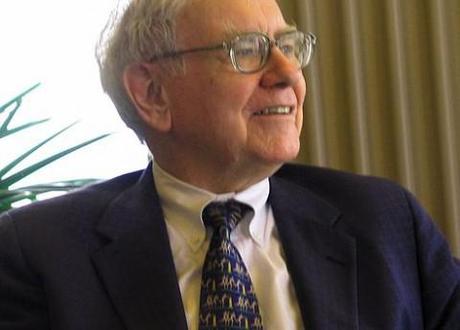
Warren Buffett is thought by some to have an autism disroder, possibly Asperger. Photo credit: Wikipedia commons
The American Psychiatric Association is currently putting the finishing touches on the fifth edition of its Diagnostic and Statistical Manual of Mental Disorders, better known as the DSM and even better known as the psychiatric community’s Bible. Among the changes the Association is considering is a narrowed redefinition of what constitutes autism, especially as diagnoses of autism and Asperger syndrome, a disorder on the autism spectrum, skyrocket.
But, as The New York Times reported last week, that has some experts worried that changing that definition would make it more difficult for people suffering from autism to get the care they need. At the same time, some claim that a narrowed definition of what autism is will eliminate some of the vagueness around autism diagnoses and ensure that those who are told they have the disorder actually have it. A new debate is emerging: Is autism over-diagnosed?
Asperger is over-diagnosed. Asperger syndrome, a disorder characterized by difficulties in social interactions, is coming in for particular questioning as it tends to be on the higher functioning end of the autism scale. Paul Steinberg, a psychiatrist, wrote in an op-ed for The New York Times, noted that the syndrome has long been a popular and often incorrect diagnosis for children and adults who are just a bit quirky. “The downside to this diagnosis lies in evidence that children with social disabilities, diagnosed now with an autism-spectrum disorder like Asperger, have lower self-esteem and poorer social development when inappropriately placed in school environments with truly autistic children,” he wrote, adding too that adults can be denied opportunities for work based on this incorrect diagnosis. “We can only hope that better physiological markers distinguishing between the autism-spectrum disorders and pure social disabilities can stem this tide of ever more pathologizing.”
I had Asperger – briefly. Also in The New York Times (it’s Asperger day over there), writer Benjamin Nugent explained in an op-ed how he was diagnosed with Asperger as a young adult because he had few friends and spent most of his time reading, writing poetry, and playing the guitar. But he grew out of it. “The biggest single problem with the diagnostic criteria applied to me is this: You can be highly perceptive with regard to social interaction, as a child or adolescent, and still be a spectacular social failure. This is particularly true if you’re bad at sports or nervous or weird-looking.” Nugent welcomed the upcoming change to the DSM, noting, “Under the rules in place today, any nerd, any withdrawn, bookish kid, can have Asperger syndrome.”
No biological test. Jacob Sullum, writing at Reason, highlighted Nugent’s piece, but noted that just because he doesn’t now have Asperger doesn’t exactly mean he never had it, being as he met the previous DSM criteria. “As with drawing a line between normal grief and ‘major depression,’ there is no biological test that can verify the diagnosis. It is all a matter of how psychiatrists choose to label (or not label) certain patterns of behavior, which nevertheless can have a serious impact how people perceive themselves and live their lives.”
Calling BS on ‘over-diagnosis’ claim. Joslyn Gray, a mother of an son with Asperger at Babble’s Strollerderby blog, called shenanigans on the claim that Asperger is over-diagnosed: “Everyone who thinks that the autism or Asperger diagnosis is being handed out like candy can suck it, suck it, suck it. Because I am 100 percent sure anyone who says that has never tried to get a child evaluated, diagnosed, and treated for something like autism. It takes months, people. Months and sometimes years. And paperwork. And appointment, after appointment, after appointment.” An autism diagnosis is serious business; ignoring autism, she wrote, won’t make it go away.
DSM redefinition will have serious impact on families. For families with children who at some point go off the rails of normal child development, the DSM’s new definition of autism is problematic, wrote Laura McKenna at The Atlantic, parent of a child diagnosed with autism. Her son, Ian, was diagnosed with autism after wandering lost “through the forest of disability labels” for three years; but after his diagnosis, he was able to get the treatment he needed. Narrowing the definition of autism will exclude children with real problems. “For those of us whose lives are inextricable from the politics of autism, it is the label — the one that was so difficult for us to accept at first — that has been the key to getting help for our children.”

